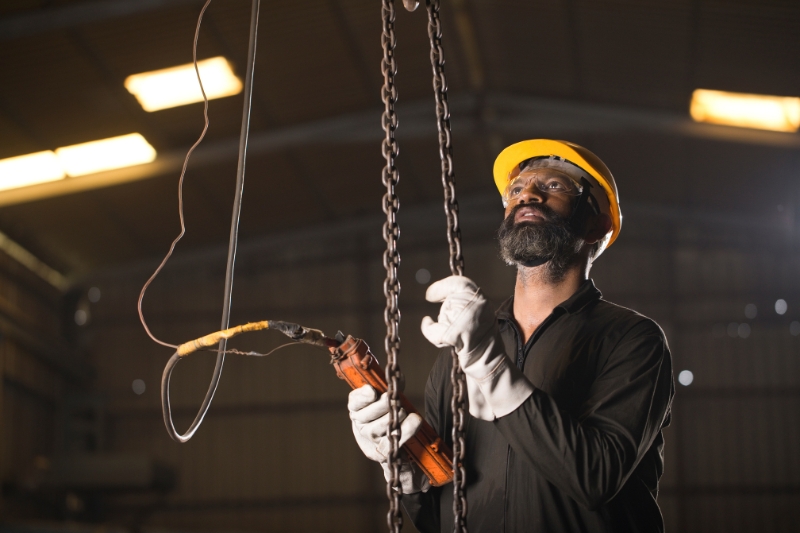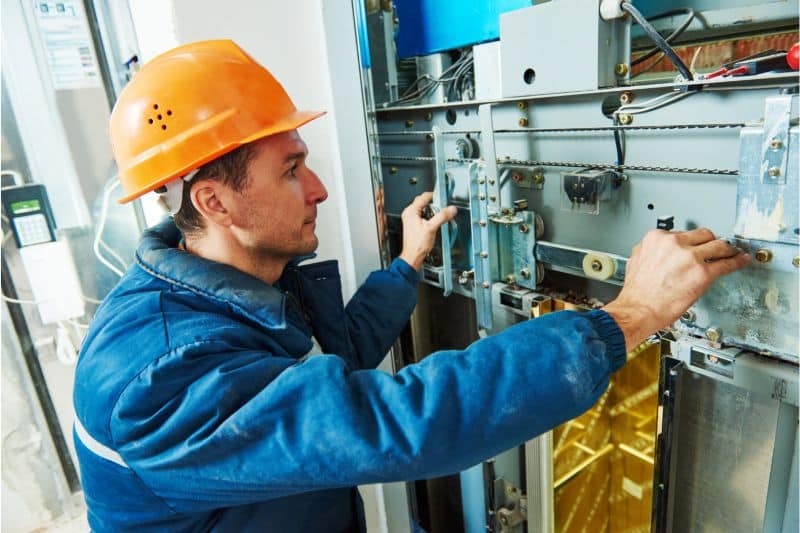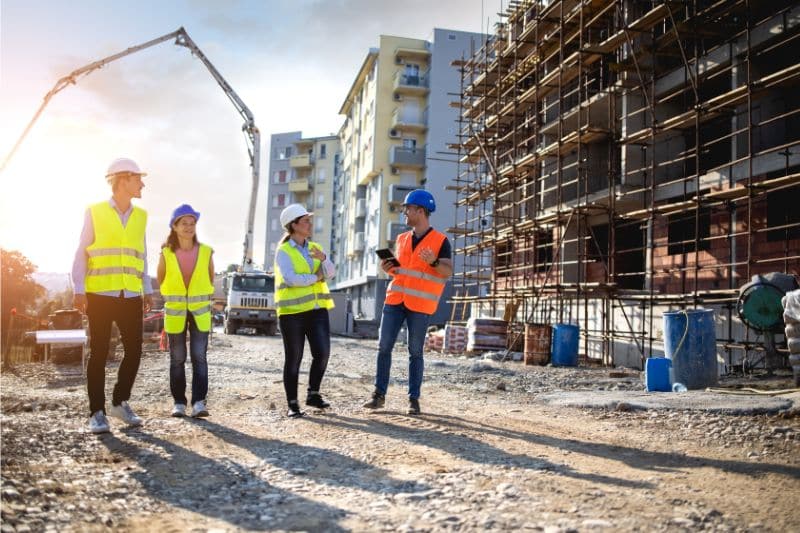What is a hoist operator and why do you need them on a construction site?
Hoist operators train to operate mobile and stationary cranes, hoists, lifts and winches. They move building materials, equipment and people around construction sites across Australia.
What is a Hoist Operator?

Hoist operators operate many types of machines. These include cranes, elevated work platforms, chairlifts, cherry pickers, winches and pile drivers. Hoist operators receive training in construction crane and mobile crane usage.
They must know how to use pneumatic, electric and manual powered machinery. How the hoist is powered will determine what lifting capacity it has.
A hoist operator will know which hoist to select by calculating the lift potential of the hoist. Electrical machinery can overheat. Pneumatic machines need correct levels of air pressure and air flow. A hoist operator will keep an eye on both of these.
The hoist operator will also be aware of the danger of electric machinery overheating and keeping the air pressure and air flow of pneumatic hoists at the correct levels.
Types of Hoist Operators

There are two basic types of hoist operators: those who move personnel and those who move materials.
Personnel hoist operators lift workers and other people and other people above the site, often at great heights. Material hoist operators do the same with equipment, supplies and building materials.
The hoist operator fills in a logbook entry, noting any untoward incidents. The hoist operator is also responsible for maintenance and repair of the hoist.
There are a few specialisations of hoist operators:
- Dredge operator: operates equipment that moves rocks and sediment.
- Winch operator: moves people and items using winch drums and controls the movement of hoists for loading and unloading.
- Crane operator: moves items using cranes, monitors the crane’s stability and liaises with a workman on the ground for the descent and unloading of the items.
Are you considering becoming a hoist operator? The following skills will give you a decided advantage.
Mechanical Aptitude
Did you enjoy playing with Meccano® or Lego® as a child? If you like working with machinery and tools, being a hoist operator could be a suitable career move for you.
You get to operate the hoists and be responsible for maintaining and repairing them after checking them at the beginning of each day.
Attention to Procedures
Construction sites can be confusing and chaotic. The site manager and team members need to work together. Procedures and rules help this to happen so that everyone can do their job effectively, efficiently and – most of all – safely.
The logbook entries and daily records you write contribute to the safety of the work site. Hoist operators need to follow directions and understand operations.
Knowledge of safety protocols and the associated dangers of operating hoist machinery are essential requirements. You must obey all site workplace health and safety rules and know how to assist if an emergency occurs. Paying attention to details can also help to prevent serious incidents.
Teamwork
On a construction site, you are part of a team, even if you are there only part-time. Being friendly and cooperative with your workmates is a given.
You will be operating expensive and potentially dangerous equipment. Your work colleagues will be relying on you to communicate clearly and follow instructions and procedures. Remember to work safely on site at all times.
Professional Mindset
Having skills with equipment and tools is just the beginning. Construction site managers will more willing to hire you if you show a positive attitude. Try to cultivate and improve your attention to detail, high concentration levels, problem solving skills, time-management skills, initiative, punctuality, communication skills and constant awareness of safety.
They will also look for a professional attitude. As a hoist operator, you are representing the construction company you are working with, the labour hire company who hired you and, of course, yourself. The skills listed above will stand you in good stead when you are looking for employment or a higher rate of pay.
How Do I Become a Hoist Operator?

The average take-home pay for a hoist operator is around $2500 a week, according to the Australia Bureau of Statistics.
To earn that, you will need to complete a Cert III or IV in construction crane operations or mobile crane operations. You will also need to get a high-risk hoist licence and a crane operating licence.
The average number of hoist operators in full-time employment is 90%, with up to 50 hours of work a week.
State and federal governments are currently supporting the building and infrastructure industries. Employment prospects for hoist operators are looking good.
Are you strong, organised, a good team member, like working outdoors and don’t mind bad weather? If so, a career as a hoist operator could be the right one for you. For trained, experienced and skilled hoist operators, call Fast Labour Hire on 9001 6541 or email us at info@fastlabourhire.com.au.

